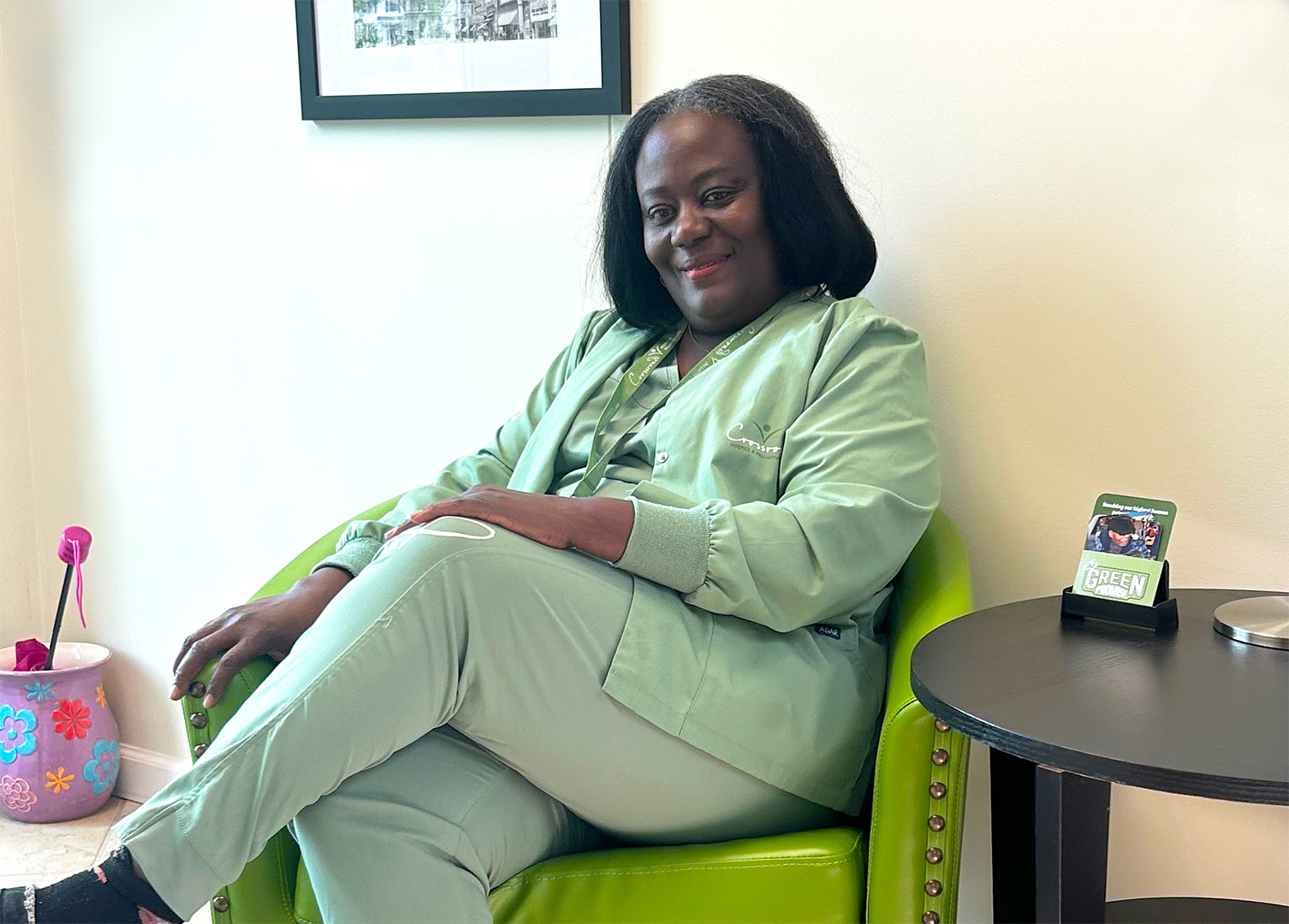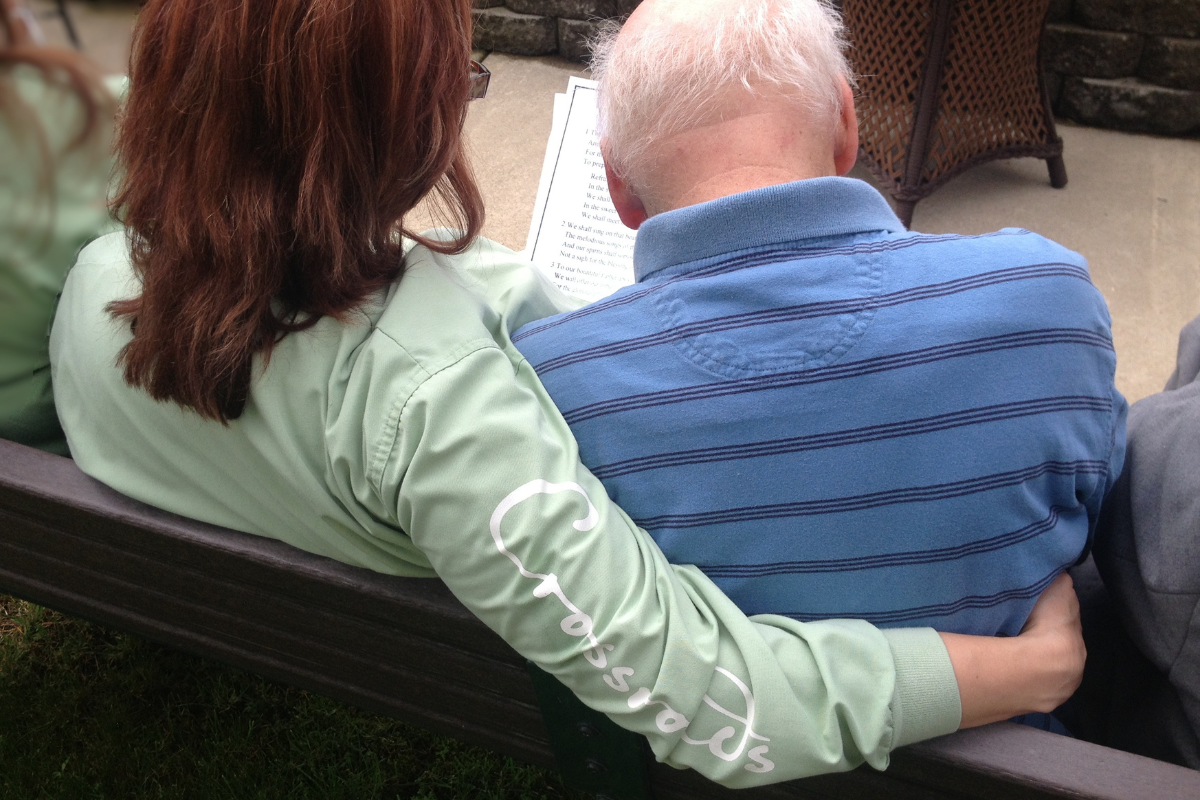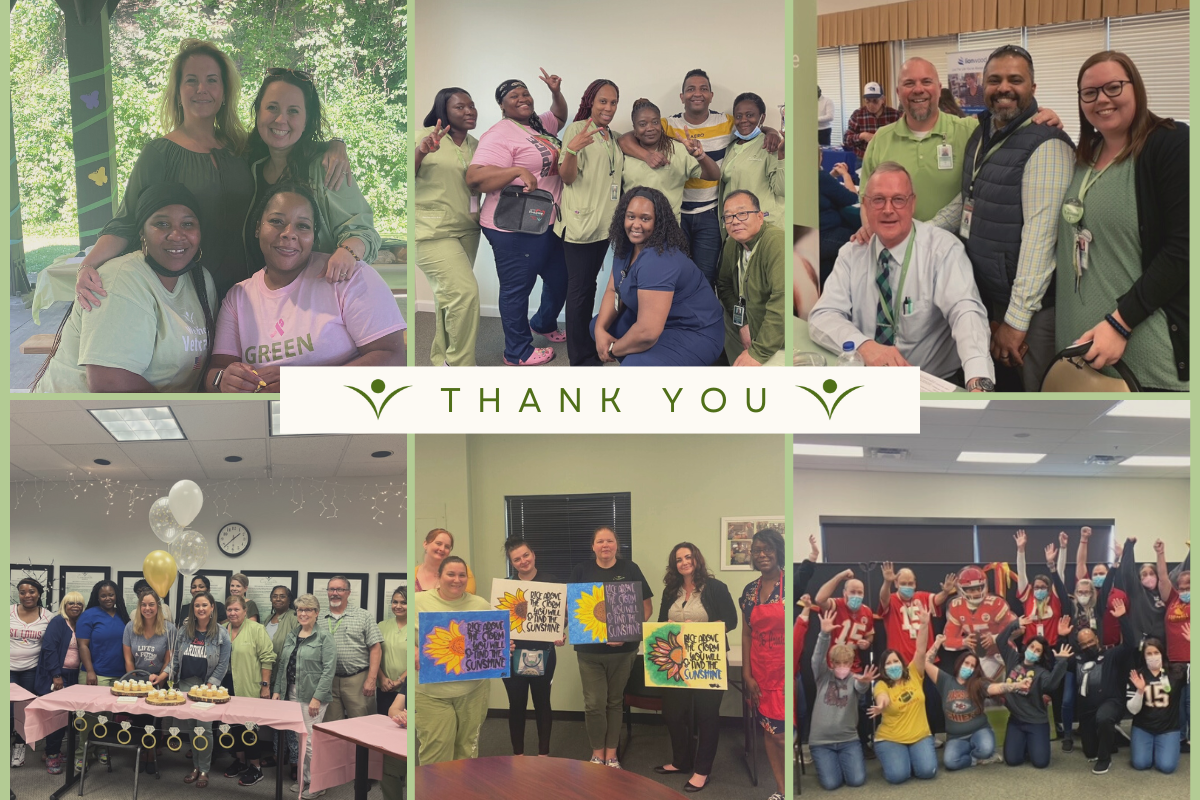Crossroads Call Center Dials Up Compassion

Do they talk slowly and clearly enough for an elderly caller to follow along? Do they show sincere emotion in their tone? These are two qualities Director of Business Development Della Miller is looking for when she recruits new talent for the Crossroads Hospice & Palliative Care call center.
Della led the creation of the call center for Crossroads more than 10 years ago. Located alongside the Crossroads site office in Memphis, Tennessee, the call center is a busy, dedicated hub where 30 full-time employees work covering four shifts, 24 hours a day, seven days a week.
According to Della, there’s no single set of qualifications for a call center hire. Her goal is to put together a diverse group of professionals who can learn from one another while supporting new and existing patients and their families. The current call center crew includes individuals with customer service, social work, and nursing backgrounds, to name a few.
First and foremost, “I’m looking for compassion and empathy,” Della said.
Before the Crossroads call center was built, each Crossroads location engaged its own local answering service. So why is a dedicated company call center better than an answering service?
“The data!” Della said, “Now we can intricately track our business and notice trends.”
The Call Center Industry is Robust
Call centers are big business. There are more than 7,400 call centers in the United States with more than 50 employees, according to proprietary research published in 2018 by Site Selection Group, a leading provider of global location advisory, economic incentive, and corporate real estate services. These call centers employ more than two million workers.
The University of Southern Mississippi-based National Association of Call Centers (NACC), published “Insomniac Theater: What’s Keeping NACC Members Awake at Night,” in the October, 2019 edition of its member newsletter In Queue. NACC members’ top five issues for 2020, according to the article, were employee turnover, employee training and performance, virtual employees, automation, and employee engagement.

Employee Training Leads to Employee Engagement
Della is the first one to stress the importance of constant employee training, which she believes leads to the most employee engagement. At the Crossroads call center, every employee on every shift receives training every week.
“Training provides consistency and frequent reminders about the best and worst calls,” she said. Included in the training offerings are what she referred to as “micro learnings” – one-on-one 30-minute intensive training sessions.
Going out on patient calls with Crossroads caregivers is also a mandatory part of ongoing call center training, Della explained.
“Caregivers call in to us during emergencies like tornadoes and snow storms. We have to be there for them so they can focus on caring for patients.”
When call center employees see Crossroads clinical personnel in action, in real time on the job, they carry that experience back with them to the call center.
Crossroads Call Center Shift Lead Josh Steen’s responsibilities include delivering weekly training sessions to call center employees. The son of two educators, Josh tunes in to how individuals like to learn.
“Some are visual, some are auditory, some like to read it, some like to hear it,” Josh explained.
He customizes lessons that will have the most impact for the trainee.
He admits that he was born with an empathetic nature. In his friend group and with peers and family, he’s often the “listening ear.” Still, at Crossroads, he said he keeps developing and growing with additional experience and training. He’s become a better, more active listener and he keeps working on his overall call center skills.
Josh is very good at listening to calls and providing constructive feedback to the call takers, which Crossroads refers to as Community Support Liaisons or CSLs. Josh started as a CSL in 2016 but was promoted to Shift Lead after one year. Now, in addition to training, Josh spends the bulk of his time on outbound calls, checking in directly with Crossroads patients.

The Crossroads Care for You Initiative
Of special interest is the Crossroads Care for You initiative. New hospice patients are called every day between 4 p.m. and 8 p.m. during their first five days with Crossroads.
“There can be very high tensions that first week,” Della said. Crossroads wants to catch and remedy any issues early. “Things happen quickly,” she continued. There are new personalities involved in care, often new medications and new routines. “The Care for You call is designed to make the patient’s journey more comfortable.”
Making calls to patients is one of the most enjoyable parts of his job, according to Josh. He likes to build rapport with patients and learn about the details of their lives. Josh admits that the relationships often become personally meaningful. But, with training, he has learned to be professional and fully present with families first – even when he himself feels loss when a patient he came to know well passes.
The world is becoming more and more digital, especially in the current COVID-19 crisis. But end-of-life care remains very personal. As Crossroads caregivers provide in-person, end-of-life care for their patients where they live, they are backed up by a small and mighty army at the Crossroads call center. The call center is a vital lifeline for patients, their families, and the professionals of Crossroads.
To learn more about how Crossroads supports patients at end of life and their families, call us at 1-888-564-3405.
If you found this information helpful, please share it with your network and community.
Copyright © 2020 Crossroads Hospice & Palliative Care. All rights reserved.




